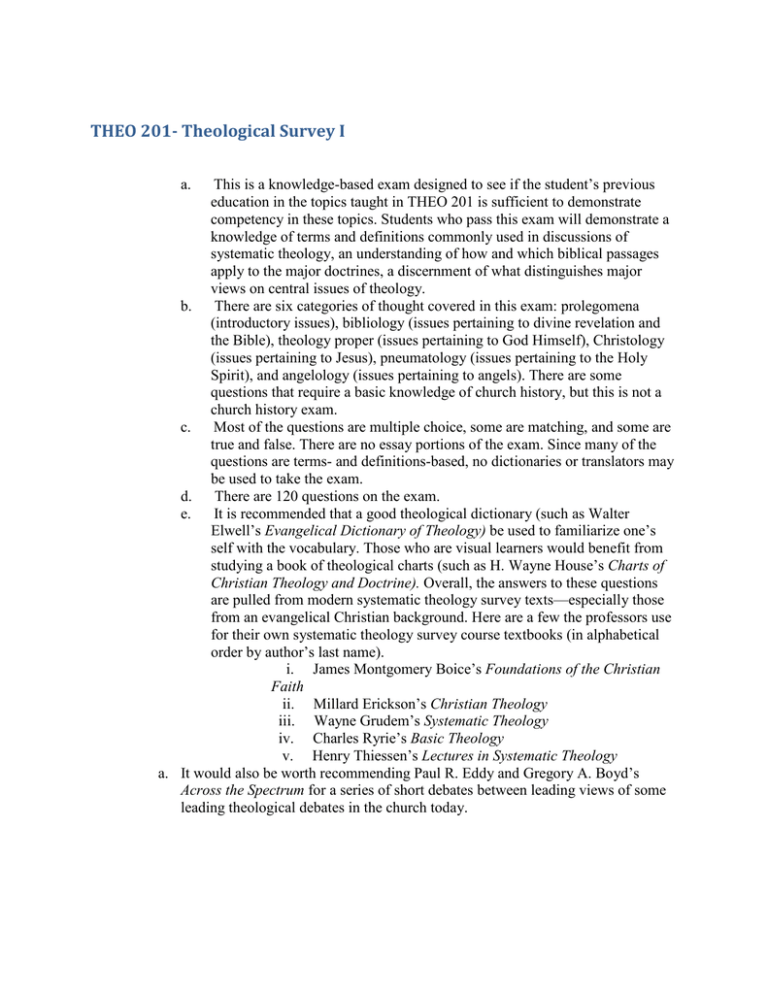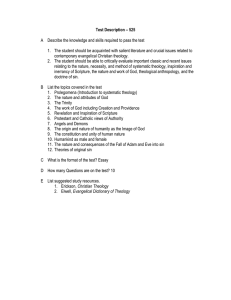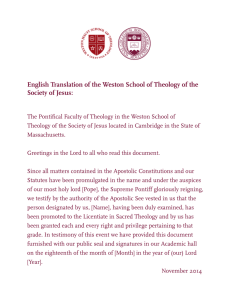THEO 201- Theological Survey I
advertisement

THEO 201- Theological Survey I a. This is a knowledge-based exam designed to see if the student’s previous education in the topics taught in THEO 201 is sufficient to demonstrate competency in these topics. Students who pass this exam will demonstrate a knowledge of terms and definitions commonly used in discussions of systematic theology, an understanding of how and which biblical passages apply to the major doctrines, a discernment of what distinguishes major views on central issues of theology. b. There are six categories of thought covered in this exam: prolegomena (introductory issues), bibliology (issues pertaining to divine revelation and the Bible), theology proper (issues pertaining to God Himself), Christology (issues pertaining to Jesus), pneumatology (issues pertaining to the Holy Spirit), and angelology (issues pertaining to angels). There are some questions that require a basic knowledge of church history, but this is not a church history exam. c. Most of the questions are multiple choice, some are matching, and some are true and false. There are no essay portions of the exam. Since many of the questions are terms- and definitions-based, no dictionaries or translators may be used to take the exam. d. There are 120 questions on the exam. e. It is recommended that a good theological dictionary (such as Walter Elwell’s Evangelical Dictionary of Theology) be used to familiarize one’s self with the vocabulary. Those who are visual learners would benefit from studying a book of theological charts (such as H. Wayne House’s Charts of Christian Theology and Doctrine). Overall, the answers to these questions are pulled from modern systematic theology survey texts—especially those from an evangelical Christian background. Here are a few the professors use for their own systematic theology survey course textbooks (in alphabetical order by author’s last name). i. James Montgomery Boice’s Foundations of the Christian Faith ii. Millard Erickson’s Christian Theology iii. Wayne Grudem’s Systematic Theology iv. Charles Ryrie’s Basic Theology v. Henry Thiessen’s Lectures in Systematic Theology a. It would also be worth recommending Paul R. Eddy and Gregory A. Boyd’s Across the Spectrum for a series of short debates between leading views of some leading theological debates in the church today.


